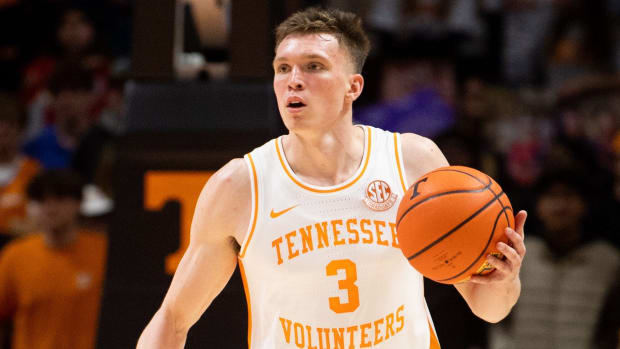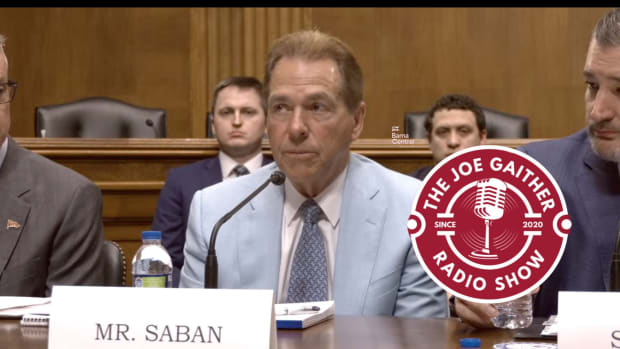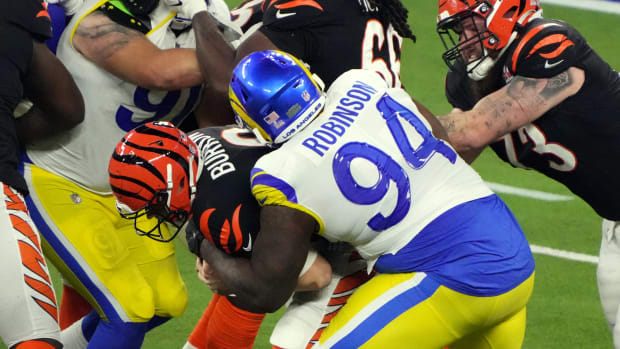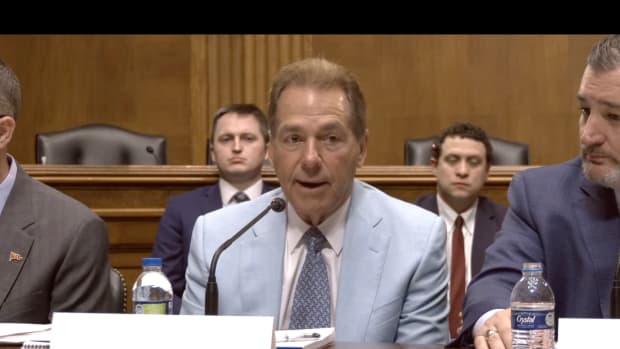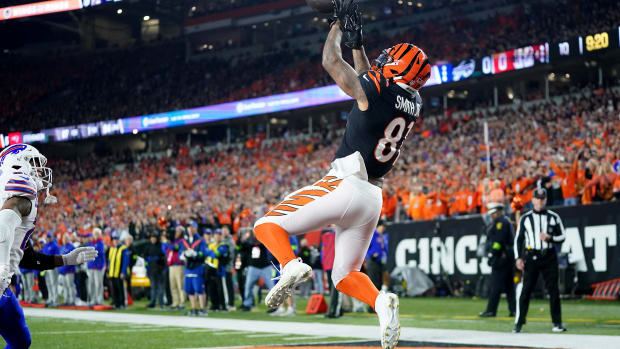Just A Minute: Kudos to Andrew Luck and to those who get the big picture
TUSCALOOSA, Ala. —This space was going to be dedicated to talking about Alabama’s initial depth chart for the 2019 season, but like with a lot of you there’s something else on my mind, something that’s just too important not too discuss.
Saturday night, the news broke that Andrew Luck was going to retire from professional football.
Being shocked was an absolutely appropriate and common reaction. However, Luck was booed by some fans at the Indianapolis Colts’ preseason game against the Bears, and subsequently ridiculed by others on social media.
Both were repugnant to me.
Luck is 29. He’s coming off a Pro Bowl season in which he was named the league’s Comeback Player of the Year after tallying 4,593 yards and 39 touchdown passes.
But he’s also endured at least one concussion, a lacerated kidney, torn cartilage in his throwing shoulder and significant calf and ankle injuries.
“For the last four years or so, I've been in this cycle of injury, pain, rehab,” Luck said during his impromptu and tearful retirement press conference.
I covered John Elway’s last game at a Super Bowl. I also covered Steve Young’s last game, when his career ended on a legal blindside hit.
My last year covering the Green Bay Packers, I’ll never forget interviewing linebacker Hardy Nickerson after the final game of the season. Before leaving he paused and looked around the locker room one last time. Sure enough, it was his last game.
Simply put, no one in media or any fan has any business saying when a player should retire. They have no idea what a person might be going through, and this goes way beyond football. Just ask former fullback Le’Ron McClain, who spent the weekend tweeting out pleas for help with health issues.
I’m going to take a moment and read an excerpt from something I wrote in my second book published, “No Time Outs,” in 2006. There will be more, along with some Tua Tagovailoa reaction in the story that goes with this on BamaCentral, but you’ll quickly get the point:
“Sooner or later, there comes a time when the speed isn’t there anymore. When the fire goes out in a coach’s belly. When the travel and long hours just aren’t worth it, and the time comes to step aside. If there’s anything I’ve learned in this business, it’s that no matter who you are _ from Cal Ripken Jr. to Bo Jackson _ real life always wins out.
“Don’t believe me? Try making a list of all the things you want to do in life and then see how many of them are sports related. Probably not too many.
“For the past decade, I’ve been of the belief that we would start seeing more professional athletes leave in the prime of their careers. Some would be tempted to take the money and go on a permanent vacation while others simply grow tired of the business, not to mention the wear and tear that accumulates from years of competition.
“How many athletes now make more money in one season than they ever dreamed of? The list grows longer each day, and one could live a long time off a million-dollar contract, even after taxes and agent fees. Play a few years, and the financial security is that much greater.
“Because of this, I have an amazing respect for those who are able to ignore the appeal of the “get everything you can” mentality that has emerged in society _ occupations like teacher, nurse or soldier. Barry Sanders was a terrific example, a man who shunned the record book for personal freedom. Another was Robert Smith, formerly of the Minnesota Vikings.
“Like Sanders, Smith left at the peak of his earning potential. A free agent coming off his best season, he could have commanded a huge contract from teams desperate for a quality running back. In 2000, Smith passed Chuck Foreman to become the Vikings' all-time leading rusher. In eight seasons he had 6,818 yards, 32 touchdowns and made more than $25 million that he reportedly invested wisely.”
"He was 28, two years shy of the age when most running backs usually started to slow down. Smith, who was injury prone and took a regular beating, especially by playing home games on the rock-hard artificial surface of the Metrodome, was also coming off his third knee surgery. Instead, Smith walked away without a limp, unlike most football players who wake up with pain every morning for the rest of their lives.
“To him, football was just a job. Fun to be sure (for a while, at least), but Smith wanted to be known as more than a football player, like Alan Page, the former Vikings defensive tackle and 1971 league MVP who went on to become a state supreme court justice.
“Bravo. A rare pro athlete who actually used sports as a means to an end, and not the other way around, like it’s supposed to be.”
Tua Tagovailoa reaction
(His chances of his being drafted by the Colts went up dramatically with the Luck news)
"I'm not too sure. I was watching college football, I think, at the time. My dad was surprised. I think that's how I found out. I went back home after our Saturday practice and was watching the Miami and Florida game and my dad ended up bringing it up, and that was it. I didn't really think anything of it."
What’s the mental drain of dealing with numerous injuries like?
"It can be hard. In the spring I dealt with my hand and then towards the ending of the season I dealt with my leg. It gets hard, especially because toward the ending of the season you're already mentally beat up, mentally drained. Not so much physically, but then it got to that point even with my knee. I think it's what I’m able to do now, with moving forward, just taking care of my body, being able to get in the weight room this time. I wasn't able to do as much last year in the weight room with the summer training, only because my hand was still healing. So I've had the opportunity to get better with that within the weight room as well as body composition, so I've been good with that."
